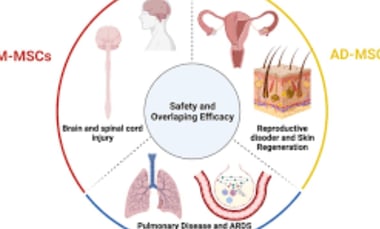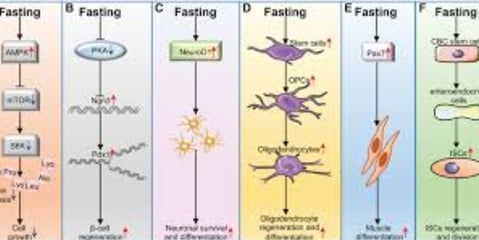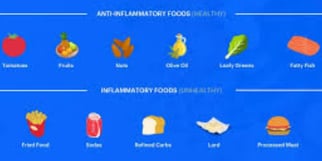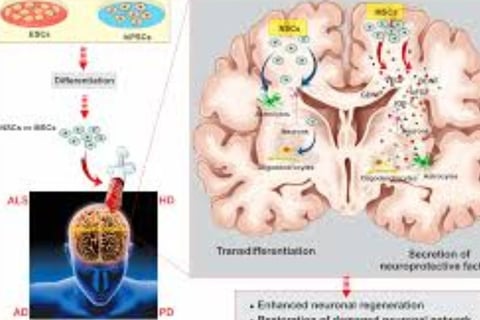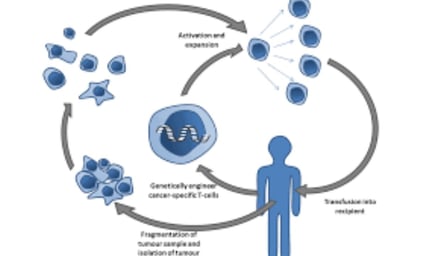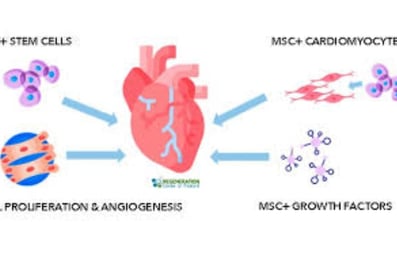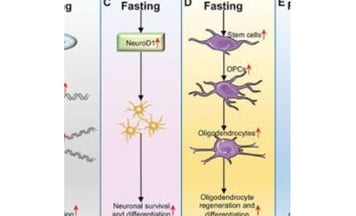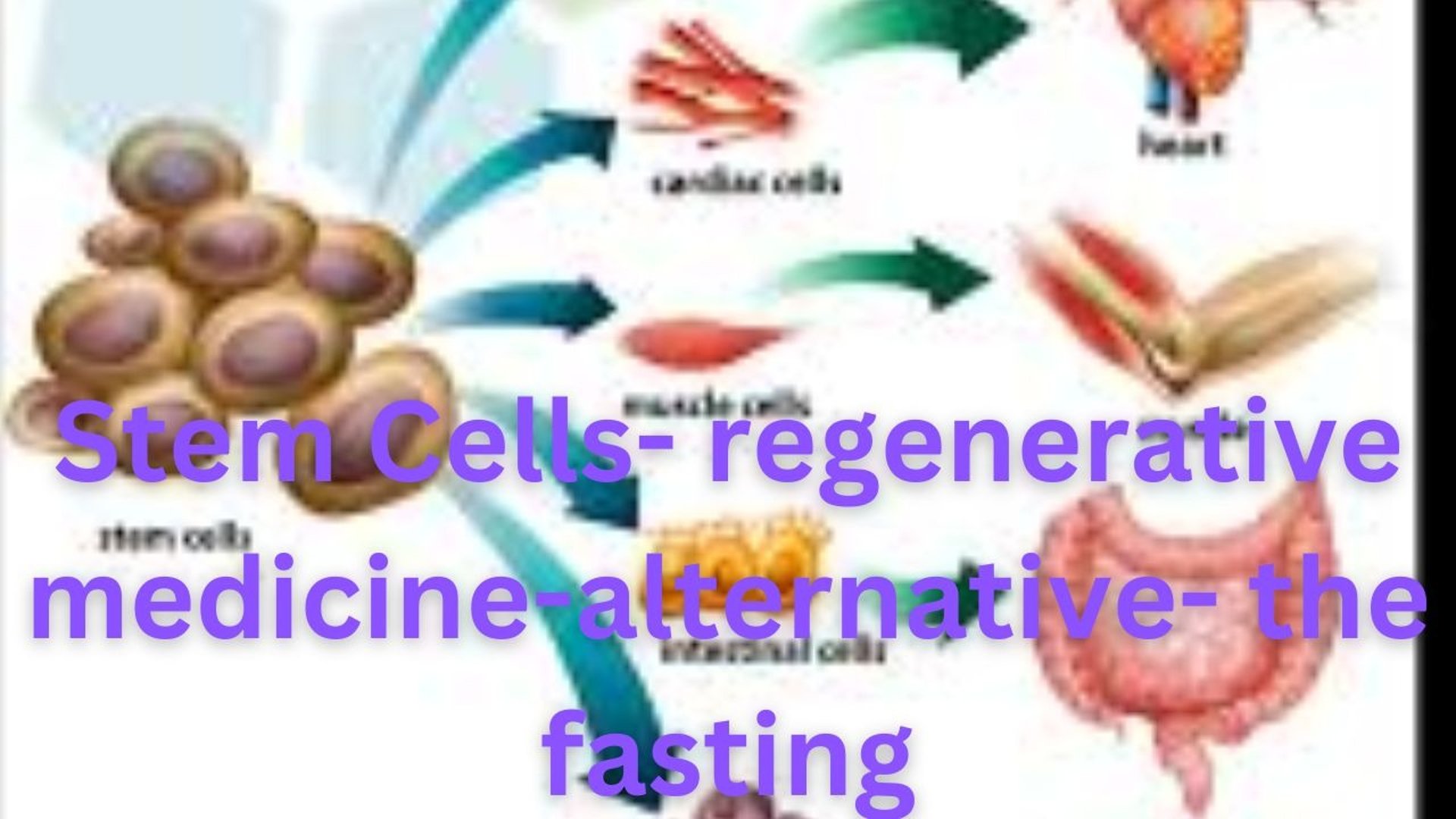
Fasting and Stem Cell Renewal: Is Regeneration Really Possible? 🧬
"🧬 Can fasting regenerate stem cells? Discover how intermittent and prolonged fasting activate autophagy, promote tissue repair, and support immune system renewal naturally. 🌱🕊️"
GENERAL
Dr Hassan Al Warraqi
7/18/2024
how to fast for stem cell regeneration
how fasting affect stem cells
the form of hip stem cell treatments
the list of diseases treated by stem cells How can stem cells cure diseases
What Are Stem Cells
definition : Stem cells are cells that can renew themselves and generate new cells for the body
stem cells can develop into cells with a more specialized function, such as heart muscle, bone, blood and brain cells
allows them to regenerate diseased tissues and organs.
Stem cells have two main types:
Embryonic stem cells: originate from unused embryos
Embryonic stem cells are pluripotent, meaning they can divide into more stem cells or become any cell in the body
Adult stem cells: from fully developed tissues. Due to its maturity, physicians can only harvest a small number of cells
Adult stem cells also have limited capabilities in generating cell types
Why Is There Such an Interest in Stem Cells
stem cells has to do with their regenerative capabilities
researchers hope to increase understanding of how diseases occur
stem cells can be used as a form of regenerative medicine and have the potential to be grown for new tissue
Stem cells can also be test new drugs
What Diseases Can Be Cured With Stem Cells
they cure life-threatening conditions and malignancies
the diseases list treated by stem cells
Anemias
Aplastic Anemias
Blood disorders or inherited red cell abnormalities
Thalassemia Major, Pure Red Cell Aplasia and Sickle Cell Disease
Bone Marrow Cancers
Plasma Cell Leukemia, Multiple Myeloma and Waldenstrom's Macroglobulinemia
Leukemia
Acute Lymphoblastic Leukemia ALL
Acute Myelogenous Leukemia AML
Lymphoma (Hodgkin's Lymphoma)
Inherited Immune Disorders
Inherited immune and other system disorders
Inherited metabolic disorders
Inherited platelet abnormalities
Congenital Thrombocytopenia and Glanzmann Thrombasthenia
Phagocyte disorders
Solid tumors
Medulloblastoma, Retinoblastoma and Neuroblastoma
How Are Stem Cell Treatments Performed
the hip joint without making a large incision through the skin, allowing for better and faster healing
stem cells can be utilized as a viable treatment option
they can provide pain relief and tissue regeneration for
Osteonecrosis
Tendon injuries
Ligament injuries
Arthritis
Fractures
shoulder
arthritis
back pain
ms multiple sclerosis
In hip stem cell treatments
injection of a patient's own stem cells
The procedure is highly effective since the patient uses their own cells, no rejection and no infection
the patient's stem cells from their bone marrow, typically from the iliac pelvic bone
stem cells white blood cells and platelets before being re-injected directly into the damaged hip tissue to accelerate its healing
advanced and comprehensive hip stem cell treatments that promote healing of injured joints, ligaments, tendons and muscles
stem cell therapy for knees and anywhere in the body
journals
https://www.sciencedirect.com/journal/stem-cell-research/about/videos
oxford
https://academic.oup.com/pages/authoring/journals
is stem cell therapy covered by insurance
not covered its expensive
where i am found the therapy
usually in the usa china and india
alternative- the fasting
how fasting affect stem cells
stem cell regeneration fasting
long recognized that a lower caloric diet donates to durability in humans
it is now unstated that fasting can change the metabolism from using glucose as petroleum to using fatty acids
This change appears to trigger our stem cells to turn out to be lovelier and more regenerative
Regular Exercise
top 5 killing cancer food
(berries, turmeric, green tea) and anti-inflammatory foods (tomatoes, olive oil, green leafy vegetables, nuts like almonds and walnuts, fatty fish like salmon) to stimulate stem cell production
how islamic fasting affect stem cells
Fasting triggers stem cell regeneration of damaged, old immune system
fasting may play a role in stem cell regeneration
Fasting may improve stem cell function: the stem cells can multiply and differentiate into specialized cells more efficiently
Fasting boosts stem cells' regenerative capacity
Fasting may promote stem cell renewal: that prolonged fasting (lasting two or more days) can trigger stem cell regeneration in the immune system
Fasting triggers stem cell regeneration of damaged, old immune system
Fasting-refeeding cycles may be most beneficial that a fasting-refeeding cycle might be even more effective
enhance the regenerative potential of stem cells, particularly blood stem cells .
FastingRefeeding Paradigm Rejuvenates Old Stem Cells
https://www.youtube.com/watch?v=7UtsZJN_f2Y
https://news.mit.edu/2018/fasting-boosts-stem-cells-regenerative-capacity-0503
https://stemcell.keck.usc.edu/fasting-triggers-stem-cell-regeneration-of-damaged-old-immune-system/
https://www.dvcstem.com/post/fasting-and-stem-cells
https://www.sciencedaily.com/releases/2014/06/140605141507.htm
https://stemcellsportal.com/content/fasting-jumpstarts-stem-cell-regeneration-new-study-reveals
Fasting appears to be a promising approach to support stem cell regeneration, offering potential benefits for tissue repair and overall health.
Here's a structured summary of the key points and considerations:
Key Points:
1. Stem Cells and Their Importance:
- Stem cells are unique cells that can renew themselves and differentiate into specialized cell types, crucial for tissue and organ repair.
2. Fasting and Stem Cell Regeneration:
- Fasting may positively impact stem cell function by shifting metabolism from glucose to fatty acid utilization, potentially enhancing stem cell renewal and differentiation.
3. Types of Fasting:
- Intermittent Fasting: Such as 16/8 or 5:2 methods, which involve cycling between eating and fasting periods.
- Extended Fasting: Longer fasting periods (over 48 hours) that may have more significant effects.
- Voluntary Fasting: Self-imposed fasting periods.
4. Mechanisms:
- Metabolic Switching: Transition from glucose to fatty acid metabolism.
- Autophagy: Cellular cleanup and recycling, potentially creating a favorable environment for stem cell regeneration.
5. Potential Benefits:
- Enhanced stem cell renewal.
- Improved differentiation into specialized cells.
- Regeneration of blood stem cells.
- Better immune system regulation.
6. Risks and Considerations:
- Potential nutrient deficiencies and low blood sugar with prolonged fasting.
- Importance of consulting a healthcare professional, especially for those with health conditions.
7. Tips for Safe Incorporation:
- Start slowly and gradually increase fasting periods.
- Stay hydrated and maintain electrolyte balance.
- Seek medical advice if necessary.
8. Additional Factors Supporting Stem Cell Health:
- Nutrient-rich diet with antioxidants and anti-inflammatory foods.
- Regular exercise.
- Adequate sleep.
- Stress management techniques like meditation or yoga.
Considerations and Next Steps:
- Scientific Evidence: Further research is needed to understand the molecular mechanisms and confirm the benefits of fasting on stem cell regeneration.
- Personalization: Consider individual lifestyle, health goals, and potential risks when choosing a fasting method.
- Practical Implementation: Plan eating periods with balanced nutrition, monitor physical and psychological responses, and consider keeping a journal to track changes.
In conclusion
while fasting shows potential for enhancing stem cell regeneration, it should be approached thoughtfully, considering individual health and lifestyle.
Integrating fasting with a holistic approach to health, including a balanced diet, exercise, sleep, and stress management, may optimize its benefits.
Consulting with a healthcare professional is advisable to ensure safety and suitability.
Frequently Asked Questions about Fasting and Stem Cell Regeneration
What are stem cells and why are they important?
Stem cells are unique cells capable of self-renewal and differentiation into specialized cell types, such as heart, bone, blood, and brain cells. This ability enables them to regenerate damaged tissues and organs.How does fasting affect stem cell regeneration?
Research indicates that fasting can positively influence stem cell function by shifting metabolism from glucose utilization to fatty acid oxidation, thereby enhancing stem cell renewal. citeturn0search4What types of fasting can aid in stem cell regeneration?
Studies have explored various fasting methods impacting stem cell regeneration:Intermittent Fasting: Involves alternating periods of eating and fasting, such as the 16/8 method (16 hours fasting, 8 hours eating) and the 5:2 method (normal eating for 5 days, reduced calorie intake on 2 non-consecutive days).
Prolonged Fasting: Refers to fasting periods exceeding 48 hours.
Voluntary Fasting: Self-imposed fasting periods.
What is the mechanism by which fasting enhances stem cell regeneration?
Fasting promotes:Metabolic Shift: During fasting, the body transitions from using glucose to burning fatty acids for energy. This metabolic switch stimulates stem cells to become more regenerative. citeturn0search4
Autophagy: Fasting induces autophagy (the process of breaking down and recycling damaged cellular components), which may help reduce oxidative stress and support stem cell longevity.
What are the potential benefits of fasting on stem cell health?
Studies suggest that fasting may:Enhance the regenerative capacity of stem cells.
Improve their differentiation into specialized cells.
Stimulate the regeneration of blood stem cells.
Improve immune system regulation.
Are there any risks associated with fasting?
Potential risks include:Nutrient deficiencies and low blood sugar levels during extended fasting periods if not properly managed.
Individuals with underlying health conditions should consult a healthcare professional before starting any fasting regimen.
What are important tips for safely incorporating fasting into one's routine?
Start Gradually: If new to fasting, begin with shorter periods and gradually increase the duration.
Medical Consultation: Consult a healthcare professional if you have any health conditions, are taking medications, or are pregnant, before starting any fasting regimen.
Hydration: Maintain adequate hydration during fasting periods.
Electrolytes: Ensure sufficient intake of electrolytes, especially during longer fasting periods.
Are there other factors that can enhance stem cell health?
Yes, in addition to fasting, other factors supporting stem cell health include:Diet: Consuming foods rich in antioxidants and anti-inflammatory properties, such as berries, turmeric, green tea, tomatoes, nuts, and fatty fish.
Exercise: Regular physical activity supports stem cell health.
Adequate Sleep: Sufficient sleep is essential for overall health and stem cell production.
Stress Management: Chronic stress can negatively impact the benefits of fasting; therefore, practicing stress-reduction techniques like meditation or yoga is beneficial.
keywords
Stem Cells- regenerative medicine,alternative- the fasting,how fasting affect stem cells,definition,Embryonic stem cells are pluripotent,Adult stem cells,pain relief and tissue regeneration,journals,how islamic fasting affect stem cells,improve stem cell function
